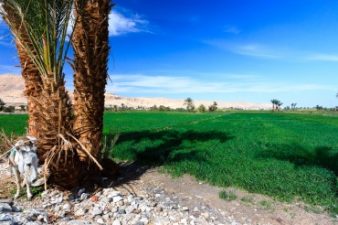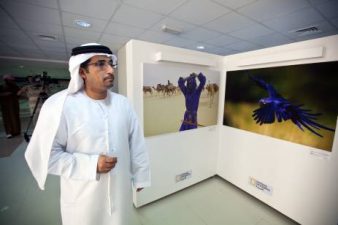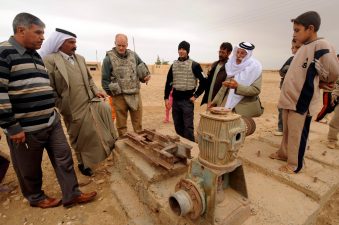 What do you know about Iraq’s environmental issues? Well, if you’re anything like me surprisingly little considering its pivotal place in the Middle East
What do you know about Iraq’s environmental issues? Well, if you’re anything like me surprisingly little considering its pivotal place in the Middle East
I think this post was born at the moment I realised I knew so little about Iraq and it environmental concerns. I get to write a lot on all sorts of countries through my work at Green Prophet – Yemen, Morocco, Turkey, Lebanon, Dubai- but Iraq remains conspicuously absent from my portfolio of work. At Green Prophet, there have been only 11 articles written directly on Iraq’s environment since 2008 which is a shockingly small number considering we have thousands of articles posted.
In a bid to enlighten myself and others alike, I’ve put together a short profile on Iraq and its environmental issues. Let’s hope it’s the first of many more (positive hopefully) articles on the country.
Population: 28 million
The Iraqi government officially ratified the Kyoto Protocol after years of resistance under Saddam in January 2008. This effectively marked the first step in realising climate change and planning towards a more sustainable future.
Water Concerns
- According to a recent report released by Swiss government in co-operation with over 100 Middle Eastern leaders, in 1991 it was estimated that 100% of the urban population and 50% of the rural population has access to safe clean water
-
Following years of war, including the war of 2003 which resulted in a major setback to water management, less than 25% of the population is connected to a water supply
-
Poor water infrastructure has resulted in incidents of cholera and diarrhoea
Destruction of Natural Habitats
-
The Marshlands of Iraq, which once constituted the largest wetland ecosystem in the Middle East, have been damaged significantly due to dam construction and drainage operations
-
According to the Blue Peace report, as a result of this environmental degradation “a large percentage of the indigenous population [in the marshlands] have been displaced and the rich biodiversity once unique to this region is disappearing.” (p13)
-
Concerns have been raised about forest degradation and deterioration of land quality due to harsh climate
Food Scarcity
-
The 2003 is also believed to have left close to four million people food insecure
-
If concerns about future water supplies are realised (rise in population and decline in supplies), experts believe that the agricultural sector will be worst affected
-
This will in turn mean that land will not be cultivated and so exacerbate food security
-
According to Blue Peace report, some of the expected impacts of climate change include decrease in soil moisture and increasing soil erosion, “all of which will ultimately affect agricultural production and food security.” (p113)
Desertification
-
Due to serious drought which has plagued the country for three consecutive years from 2007-10, there have threaten desertification in southern Iraq
-
Experts have estimated that almost 90% of the land in Iraq could be subject to desertification over a period of time.
-
If water supplies dwindle and desertification takes hold than it is feared that a shortage in resources could lead to political conflict such as the recent tensions between Iraqis and Kurds over water.
: Image via The US Army on Flickr.
For more on Iraq and its environmental concerns see:
Iraqi Sheikh Threatens to Demonstrate If Kurds Don’t Share Water
US Leaves Iraq with a Legacy of Waste
Peak Wheat? One Tenth of Iraq’s Wheat Attacked by Killer Fungus




Definitely believe that which you said. Your
favorite reason appeared to be on the web the simplest
thing to be aware of. I say to you, I certainly get irked while people think about worries that they
plainly don’t know about. You managed to hit the nail upon the top and also defined out the whole thing without having side-effects , people could take a signal. Will likely be back to get more. Thanks
my web blog: salt Lake city appliance repair
Thanks Arwa! This is great.
Arwa,
If you are doing more articles about the Marshes, definitely contact Nature Iraq. Azzam Alwash, the CEO, is one of the more knowledgable people on the marshlands. He can put you in contact with Jassim Al Asadi who runs the southern office of Nature Iraq in the Central Marshes. We work alot there and are trying to help the government establish its first National Park there as well as properly manage Iraq’s first and only Ramsar site (the Hawizeh Marshes) … but we also have lots of other activities going on around the country.
No problem! Glad you found it interesting and keep an eye out for the piece I’m gonna do on the Marshlands in the next couple of days.
Arwa
Arwa,
Thank you for this very informative piece.